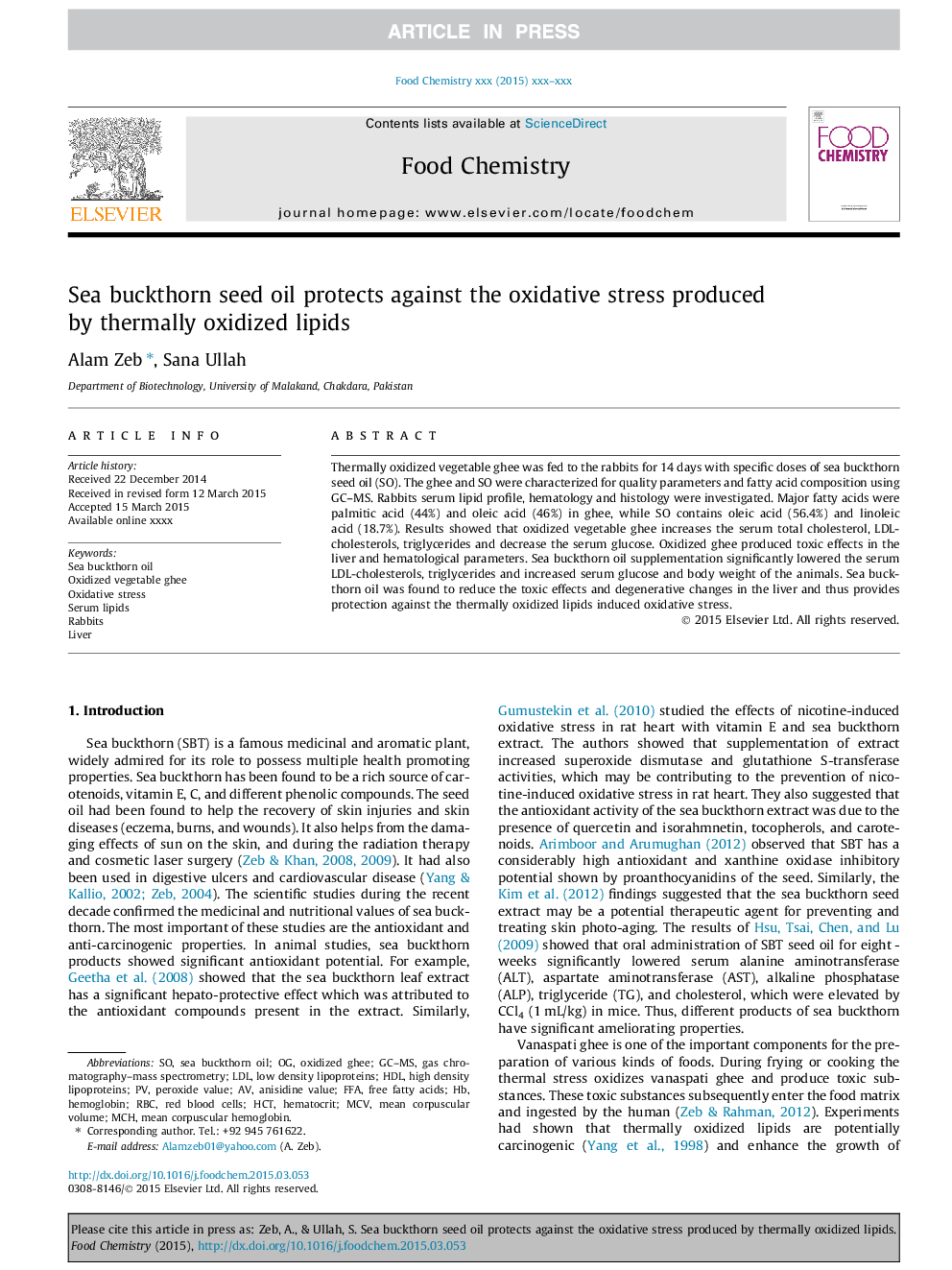| Article ID | Journal | Published Year | Pages | File Type |
|---|---|---|---|---|
| 7591067 | Food Chemistry | 2015 | 7 Pages |
Abstract
Thermally oxidized vegetable ghee was fed to the rabbits for 14Â days with specific doses of sea buckthorn seed oil (SO). The ghee and SO were characterized for quality parameters and fatty acid composition using GC-MS. Rabbits serum lipid profile, hematology and histology were investigated. Major fatty acids were palmitic acid (44%) and oleic acid (46%) in ghee, while SO contains oleic acid (56.4%) and linoleic acid (18.7%). Results showed that oxidized vegetable ghee increases the serum total cholesterol, LDL-cholesterols, triglycerides and decrease the serum glucose. Oxidized ghee produced toxic effects in the liver and hematological parameters. Sea buckthorn oil supplementation significantly lowered the serum LDL-cholesterols, triglycerides and increased serum glucose and body weight of the animals. Sea buckthorn oil was found to reduce the toxic effects and degenerative changes in the liver and thus provides protection against the thermally oxidized lipids induced oxidative stress.
Keywords
Related Topics
Physical Sciences and Engineering
Chemistry
Analytical Chemistry
Authors
Alam Zeb, Sana Ullah,
